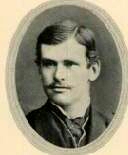

Cape Digital Music (Bob Shafto)

CAPT Edward D. Shafto (killed in Afghanistan, 14 October 1879)
Temperley, Cope, Narmour, & Dannenberg are the major influences on the development of MugixX.
David Temperley,
Professor of Music Theory,
Eastman School of Music
The Cognition of Basic Musical Structures.
Cambridge, MA: MIT Press, 2001.
Music and Probability.
Cambridge, MA: MIT Press, 2010.
The Musical Language of Rock.
Oxford University Press, 2018.
David Cope,
Professor of Music,
University of California,
Santa Cruz
Computers and Musical Style.
Madison,
WI: A-R Editions, 1991.
Experiments in Musical Intelligence.
Madison, WI: A-R Editions, 1995.
The Algorithmic Composer.
Madison, WI: A-R Editions, 2000.
Virtual Music. Cambridge, MA:
MIT Press, 2001.
Computer Models of Musical Creativity. Cambridge, MA:
MIT Press, 2005.
Hidden Structure: Music Analysis Using Computers.
Madison, WI:
A-R Editions, 2008.
Eugene Narmour,
Eastman School of Music & University of Pennsylvania
The Analysis and Cognition of Basic Melodic
Structures: The Implication-Realization Model. Chicago,
IL: The University of Chicago
Press, 1990.
The Analysis Cognition of Melodic Complexity: The
Implication-Realization Model. Chicago, IL: The University
of Chicago Press, 1992.
Roger B. Dannenberg,
Professor of Computer Science, Art & Music,
Carnegie Mellon University
(with Mary Simoni), Algorithmic Composition: A Guide to Composing Music With Nyquist.
Ann Arbor: The University of Michigan Press, 2013.
The Complete MIDI 1.0 Detailed Specification: Incorporating all Recommended Practices, document version 96.1 The MIDI Manufacturers Association, 1996.
General MIDI Level 2. The MIDI Manufacturers Association, 1999.
Music Theory for the 21st-Century Classroom, by Robert Hutchinson. University of Puget Sound, 2023.
Wagnerism: Art and Politics In the Shadow of Music, by Alex Ross. Farrar, Straus and Giroux, 2020.
Fryderyk Chopin: A Life and Times, by Alan Walker. Farrar, Straus and Giroux, 2018.
The Selected Letters of John Cage, by John Cage; edited by Laura Kuhn. Wesleyan University Press, 2016.
Experimental Music Since 1970, by Jennie Gottschalk. Bloomsbury Academic, 2016.
The Sound of Innovation: Stanford and the Computer Music Revolution, by Andrew J. Nelson. MIT Press, 2015.
The Rest Is Noise: Listening to the Twentieth Century, by Alex Ross. Picador, 2008.
Anthology for Musical Analysis, sixth edition, postmodern update, by Charles Burkhart with William Rothstein. Schirmer, 2008.
The Charles Ives Tunebook, second edition, by Clayton W. Henderson. Indiana University Press, 2008.
The Devil's Horn: The Story of the Saxophone, From Noisy Novelty to the King of Cool, by Michael Segell. Picador, 2005.
analog days: The Invention and Impact of the Moog Synthesizer, by Trevor Pinch and Frank Trocco. Harvard University Press, 2002.
Give My Regards to Eighth Street: Collected Writings of Morton Feldman. edited by B.H. Friedman. Afterword by Frank O'Hara. Exact Change, 2000.
Talking Music, by William Duckworth. Da Capo Press, 1999.
Charles Ives and His World, edited by J. Peter Burkholder. Princeton University Press, 1996.
The Music of Conlon Nancarrow, by Kyle Gann. Cambridge University Press, 1995.
Words About Music: The Madison Lectures, by Milton Babbitt. Edited by Stephen Dembski & Joseph N. Straus. The University of Wisconsin Press, 1987.
A History of Musical Style, revised edition, by Richard L. Crocker. Dover, 1986.
Orientations, by Pierre Boulez (ed., Jean-Jacques Nattiez; trans., Martin Cooper). Harvard University Press, 1986.
Aspects of 20th Century Music, by Richard DeLone, Vernon Kliewer, Horace Reisberg, Mary Wennerstrom, Allen Winold, & Gary E. Wittlich (coordinating editor). Englewood Cliffs, NJ: Prentice-Hall, 1975.
Twentieth-Century Harmony: Creative Aspects and Practice, by Vincent Persichetti. W.W. Norton, 1961.
The New Oxford History of Music. Oxford University Press, 1957-2001.
The Craft of Musical Composition, Books 1 & 2, by Paul Hindemith (trans. by Arthur Mendel, Otto Ortmann). Schott, 1939, 1942.
The Hymnal of the Protestant Episcopal Church in the United States of America. New York: The Church Pension Fund, 1940.
The Authentic Librettos of the Wagner Operas, author unknown. Crown Publishers, 1938.
Operas Every Child Should Know: Descriptions of the Text and Music of Some of the Most Famous Masterpieces, by Dolores Bacon. Grossett & Dunlap, 1911.
Free Jazz, by Jeff Schwartz. SUNY Albany, 2022.
50 Guitar Hacks For the Advancing Guitarist, by Graham Tippett. unlocktheguitar.net, 2016.
Jelly Roll, Bix, and Hoagy: Gennett Records and the Rise of American Music Grassroots, (second edition). by Rick Kennedy. Indiana University Press, 2013.
The Drummer's Bible, second edition, by Mick Berry & Jason Gianni. See Sharp Press, 2012.
Frank Zappa and The Mothers of Invention, One Size Fits All (Songbook). Hal Leonard, 2011.
Frank Zappa and The Mothers of Invention, Over-Nite Sensation (Songbook). Hal Leonard, 2011.
Bouncin' With Bartok: The Incomplete Works of Richard Twardzik, by Jack Chambers. The Mercury Press, 2008.
The Devil's Horn, by Michael Segell. Picador, 2005.
Miles Davis (Songbook), vol. 1, second edition. Arrangements by Brent Edstrom & James Sodke. Hal Leonard, 2003.
The Jazz Bass Book, by John Goldsby. Backbeat, 2002.
The Art of Two-Line Improvisation, by Jimmy Wyble. Mel Bay Publications, 2001.
The Jazz Theory Book, by Mark Levine. The Sher Music Co., 1995.
Intervallic Improvisation, by Walt Weiskopf. Jamey Aebersold Jazz, 1995.
Steely Dan Complete (Songbook). Hal Leonard, 1995.
The Real Little Ultimate Jazz Fake Book. Hal Leonard, 1992.
The Jazz Guitarist's Handbook, by Bruce Forman. Guitar Solo Publications, 1991.
Composing Music: A New Approach, by William Russo with Jeffrey Ainis & David Stevenson. The University of Chicago Press, 1988.
How to Play Bebop vols. 1-3, by David N. Baker. Alfred, 1987.
Charlie Parker Omnibook. Joel Goldfeder Music Enterprises, 1978.
Jazz Composition: Theory & Practice,, by Ted Pease. Berklee College of Music, 2003.
Jazz Composition & Orchestration, by William Russo. The University of Chicago Press, 1975.
Arranging Concepts: A Guide to Writing Arrangements for Stage Band Ensembles, by Dick Grove. First Place Music, 1972.
The Jerome Kern Song Book, edited by Oscar Hammerstein III, arrangements by Albert Sirmay. Simon and Schuster and T.B. Harms, 1955.